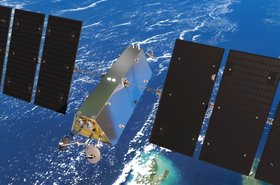SpaceX's satellite firm Starlink has unveiled its Community Gateway offering, which looks to provide high-speed Internet to remote locations for ISPs.
But it won't come cheap, with prices set at $75,000 per Gbps monthly and a $1.25 million upfront cost.
Low Earth Orbit (LEO) operator Starlink notes that the first such gateway was announced on the remote island of Unalaska, Alaska, a city that has a population of around 4,000.
According to the company, it can provide speeds of up to 10Gbps for both upload and download and is "enough to serve thousands of new customers while operating at more than 99 percent uptime."
"With Community Gateways, Starlink satellites are able to deliver fiber-like speeds with local providers distributing connectivity to homes, businesses, and governments using last-mile fiber, fixed wireless, and mobile wireless,” Starlink said on its website.
The technology is underpinned by Starlink’s global laser mesh network, which operates in a dedicated Ka spectrum band.
Earlier this week, tractor manufacturer John Deere signed a deal with Starlink that will see the satellite company provide connectivity to farming equipment in remote locations.
The deal will provide satellite connectivity to tractors, seed planters, crop sprayers, and other equipment in areas that lack adequate Internet service, allowing them to use Deere’s digital products.
Earlier this month, SpaceX launched its first batch of satellites for direct-to-smartphone connectivity via a Falcon 9 rocket from the Vandenberg Space Force Base in California.
Meanwhile, in the UK BT is reportedly in talks with Starlink over a satellite phone and broadband service that could combat the issue of rural not spots, as reported by The Telegraph. BT is currently testing the Starlink kit at its Adastral Park research center near Ipswich.
In other recent satellite news:
UAE-based operator Du has partnered with global satellite operator Intelsat to expand cellular connectivity across the country. The partnership will see Du leverage the IS-39 satellite to provide cellular backhaul coverage to the most remote areas of the country.







